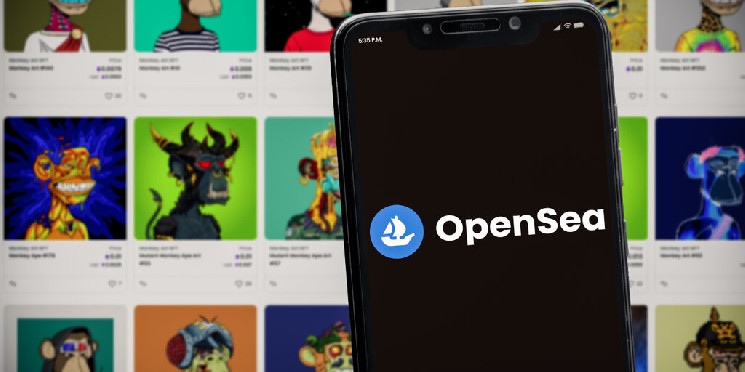Mark Cuban and Bored Ape Yacht Club creator Yuga Labs were among the big players to speak out against Friday NFT trading platform OpenSea, on the company’s Thursday announcement that it intends to discontinue enforcement of creator royalties.
“Failure to collect and pay royalties on NFT sales is a HUGE mistake by OpenSea,” Cuban, the billionaire tech entrepreneur, wrote on Twitter. Twitter Friday. “It reduced confidence in the platform and hurt the industry.”
Cuban words generally carry some weight in the NFT space given the public profile of the owner of the Dallas Mavericks and long-term involvement in the crypto industry.
But they probably stung even more, given that Cuban himself is an OpenSea investor, having participated in the company’s $23 million Series A funding round in 2021. The NFT marketplace is currently valued at $13.3 billion, following a Series C fundraising last year.
On Thursday, after months of buildup, OpenSea announced its plans to stop enforcing mandatory maker royalties — fees typically ranging from 2.5% to 10%, which are added to NFT secondary sales and paid to creators.
Failure to collect and pay royalties on NFT sales is a HUGE mistake by @opensea. It reduced confidence in the platform and harms the industry. And I say this as @opensea investor @DevinFinzer
— Mark Cuban (@mcuban) August 18, 2023
The move was largely seen as a capitulation to competition from other NFT marketplaces that have also done so reduced royalties for creators in attempts to court buyers. OpenSea CEO and co-founder Devin Finzer had previously vigorously defended creator fees as essential to enforcing artist rights.
The makers of several high-profile NFT projects, including Yuga Labs, joined Cuba’s condemnation of OpenSea’s decision on Friday. iIn response to the policy change, Yuga Labs plans to begin the process of ending OpenSea compatibility.
A Yuga Labs spokesperson confirmed this Decrypt that this means that by February 2024, the company will ban OpenSea from trading both new Yuga projects and projects with upgradeable smart contracts. To date, sales of Yuga collections have generated more than $9 billion in NFT transactions across the entire NFT market, according to data from CryptoSlam.
About @opensea’s decision to discontinue their operator filter. pic.twitter.com/ahc155WWkX
— Yuga Labs (@yugalabs) August 18, 2023
Other makers, including Bettythe pseudonymous founder of the NFT project Deadly sin, called for an industry-wide boycott of OpenSea. She slammed the business for failing artists, especially underrepresented artists, by abandoning the crypto-native principle to support decentralization through policies like profit-sharing.
“Emerging artists will never see the edge that almost every major brand and artist has been given prior to it all,” she wrote on Twitter on Friday. “Innovation will stall, dependence on venture capital financing will have to become the norm. I’ve said it a million times, but underrepresented creators will suffer.”
Are we boycotting @opensea? If it doesn’t align with creators’ incentives, creators should move their businesses to places that do.
— BETTY (@betty_nft) August 18, 2023
While smaller marketplaces including Rare took the opportunity Friday to emphasize their unwavering commitment to creator royalties, some on Twitter bemoaning OpenSea’s decision as a death knell for the practice across the industry; OpenSea represented by far the largest NFT trading platform that still adheres to the policy.
For those fears, the digital artist Fvckrender refuted with confidence in consumer solidarity: “We stop using OpenSea. We sink, they sink.”
We stop using @opensea, we sink they sink
— FVCKRENDER (@fvckrender) August 18, 2023


